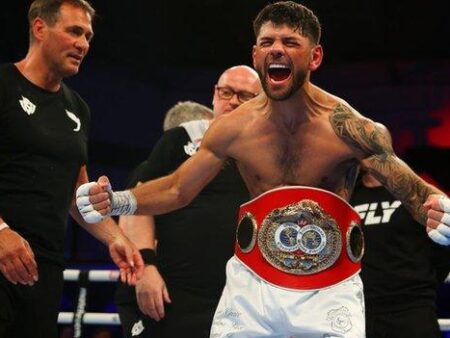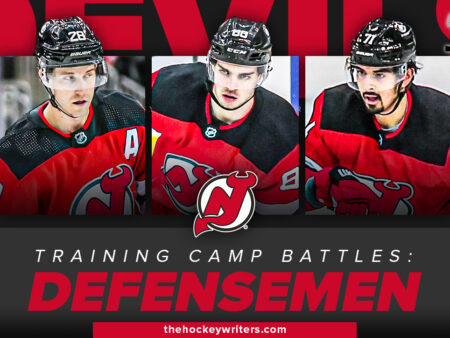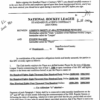In the high-stakes, often brutal world of mixed martial arts, fighters routinely face difficult choices – whether to take a last-minute bout, risk injury for a title shot, or endure grueling weight cuts. Yet, a recent decision by UFC lightweight Renato Moicano has stirred a different kind of debate, one that transcends the octagon and delves deep into the often-murky waters of athlete compensation and loyalty.
Moicano, a veteran of the sport, publicly declared his intention to refuse his share of the staggering $375 million settlement stemming from the UFC antitrust lawsuit. His reasoning? He signed a contract, accepted its terms, and views taking the money as a betrayal of his agreement and, by extension, his loyalty to the promotion. This stance has, perhaps unsurprisingly, drawn sharp criticism, most notably from former UFC heavyweight and popular podcaster, Brendan Schaub.
The Unfathomable Refusal: A “$375 Million Question Mark”
The antitrust lawsuit, initiated by a collective of former UFC athletes, covered fighters who competed between 2010 and 2017, alleging that the promotion engaged in anti-competitive practices to suppress fighter pay. With over 97 percent of eligible fighters accepting their payout, which averaged approximately $250,000 per person, Moicano`s decision stands out as a peculiar anomaly.
Brendan Schaub, known for his candid and often abrasive commentary, minced no words in his assessment. On his popular show, The Schaub Show, he vehemently argued that Moicano’s refusal was not just misguided, but “so f*cking dumb.” Schaub`s core contention is refreshingly simple: the money, already allocated, will be distributed regardless of Moicano`s participation. By opting out, Moicano isn`t denying the UFC anything; he`s merely ensuring a slightly larger slice of the pie for other claimants.
“That money is getting allocated no matter what, buddy. No matter what,” Schaub emphatically stated. “You being a company man and not taking it, doesn’t give you an inch of good grace with the UFC. This does not matter.”
The Irony of Loyalty in a Cutthroat Business
Moicano’s decision, framed as an act of contractual integrity and loyalty, clashes starkly with the often-ruthless realities of the combat sports business. Schaub highlights the critical asymmetry: while Moicano attempts to demonstrate unwavering allegiance, the UFC, he contends, operates with a cold, calculated efficiency, prioritizing its bottom line above all else.
“The UFC does not give a f*ck,” Schaub declared, pointing out that the promotion settled for a fraction of the original $1.7 billion lawsuit claim. He further elaborated on the perceived naivety of fighters who believe such gestures of loyalty are reciprocated, or even noticed, by an organization that routinely signs multi-billion dollar television deals from which fighters receive “zero” direct percentage.
This sentiment taps into a long-standing grievance within the MMA community: the perceived imbalance of power and financial distribution between the promotion and its athletes. Many believe that fighters, the primary assets of the enterprise, are significantly underpaid compared to athletes in other major sports leagues, and are often conditioned to accept less out of fear of repercussions or a misguided sense of gratitude.
The “Brainwashed” Argument and Economic Realities
Schaub’s most pointed critique labeled Moicano as “brainwashed,” suggesting that his decision is a symptom of a broader issue within the fighter community where athletes internalize the company narrative to their detriment. This “company man” mentality, Schaub argues, perpetuates the cycle of underpayment and inhibits collective action for better conditions.
Consider Moicano`s recent career trajectory: a two-fight skid, including a short-notice submission loss to Islam Makhachev for a title. Schaub bluntly reminded Moicano that the payday from such a championship opportunity is likely the peak of his earning potential within the sport. To forgo a substantial settlement check, especially with a young family, strikes Schaub as financially imprudent, bordering on negligent.
“You will never make more money than when you fought Islam for the belt,” Schaub asserted. “And your wife’s f*cking pregnant, you have a f*cking young kid, you’re never going to be champion, and you want to give up $200,000.”
The stark comparison between a fighter`s potential lifetime earnings and the casual sums a promoter might wager on a given night serves as a potent, if somewhat brutal, reminder of the vast financial disparity at play. To Moicano, $200,000 might represent a significant portion of his career earnings; to the architects of the UFC empire, it is, in Schaub’s words, “like it ain`t shit.”
Beyond the Octagon: A Broader Conversation
Renato Moicano`s unique refusal of the antitrust settlement money, and Brendan Schaub`s impassioned response, have ignited a crucial conversation that extends far beyond individual fighter choices. It underscores the perpetual tension between individual loyalty and collective welfare, the ongoing struggle for fair compensation in professional sports, and the complex psychological factors that influence athletes` decisions in a high-pressure, high-stakes environment.
Whether Moicano`s principled stand will earn him any genuine favor with the UFC, or merely leave him financially disadvantaged while others benefit from his eschewed share, remains to be seen. What is clear, however, is that this curious case offers a compelling glimpse into the challenging economic landscape faced by elite combat sports athletes, and the enduring debate over what constitutes true loyalty in a business that often demands everything.










